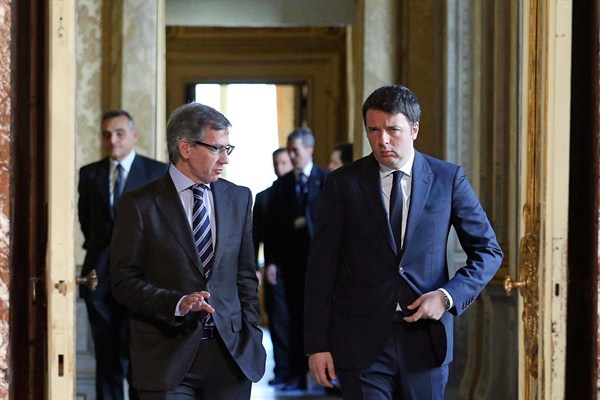In the winter of 2013, then-Italian Prime Minister Enrico Letta came out of a meeting with U.S. President Barack Obama with the idea that the United States, too busy with other issues, had delegated the solution of the turmoil in Libya to Italy. This perception soon percolated into both the foreign policy and the defense establishments in Rome: Libya was now important not just because of geography and longstanding ties, but also because it was one of the few areas of the world in which the rest of the West would look to Italy for a solution.
Yet two years later, it is hard to say whether Italy owns the West’s response to Libya. By now the crisis there has become too large and too volatile for Italy’s small international clout and for the capacities of Letta’s successor, Matteo Renzi. But because of Italy’s frontline role in the ongoing refugee crisis in the Mediterranean, largely rooted in Libya’s unrest, the country is more important than ever to Renzi’s political fortunes.
Despite the new scale of the migrant crisis in the Mediterranean, migration is hardly a new issue for Italy and Libya. In fact, it has played a crucial role in their recent ties. In 2008, Italy reached a $5 billion deal with former Libyan leader Moammar Gadhafi, in which Italy effectively outsourced migration control to Libya in exchange for Italian investments and a friendship treaty.

